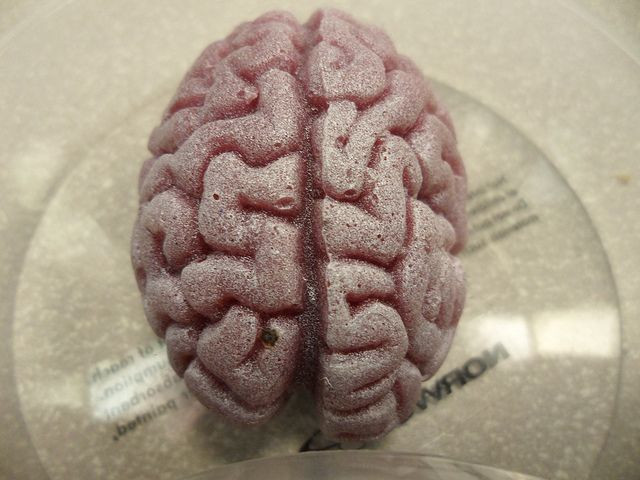Long-Term Effects Of Alcohol Impair Brain's Pathways That Underlie Impulse Control

The idea alcohol has negative effects on the brain isn’t anything new. Previous studies, however, have only measured these effects through behavior and post-mortem studies — not scans of the actual brain. A new study published in Alcoholism: Clinical & Experimental Research, the official journal of the Research Society on Alcoholism and the International Society for Biomedical Research on Alcoholism, finally makes use of the technology to gain a deeper understanding of the long-term effects alcohol has on white brain matter.
“Frontal white matter tracts are the pathways that connect the frontal lobes to the rest of the brain,” study co-author Catherine Brawn Fortier, a neuropsychologist and researcher at the VA Boston Healthcare System and assistant professor at Harvard Medical School, explained in a press release. "The frontal cortex is the integration center for all other parts of the brain that are important to behavior and cognitive function. These pathways support self-monitoring, planning, judgment, and reasoning." Not only that, but Fortier added these frontal pathways drive the ability to learn and change new patterns and behaviors.
By using high-resolution structural magnetic resonance (MR) scans to create and assess a 3D structure of "global and regional white matter," Fortier and her team could see reductions in middle-aged recovering alcoholics' white matter pathways compared to non-alcoholics. Recovering alcoholics included participants who were five years sober after 25 years of alcohol abuse. Damage to the brain’s white matter was a result of higher quantity and exposure. Basically, the more you drink, the more damage you do to your brain.
Gray matter is negatively affected by years of heavy drinking, too. Gray matter is a major component of the central nervous system, and it's a large group consisting of neurons responsible for brain function. The structure of this group processes the information from our sensory organs and other gray regions of the brain. And like white matter, reduced gray matter worsens a person's planning, prioritizing, impulse, and memory.
The message is clear: The longer and more a person drinks, the worse their control and judgement is, lessening the chances of sobriety as they get older. Heavy drinking hurts the brain's ability to function and heal all at once. The time to get help for alcoholism is now.
"Our data demonstrated possible recovery of tissue of the left inferior frontal gyrus with maintained abstinence in those alcoholics who successfully stopped drinking prior to their fifth decade," Fortier said. "This finding is important because it demonstrates a possible critical threshold; excessive heavy drinking after a certain age — our data indicated age 50 — may lead to permanent brain changes, whereas earlier in life there may be more chance for brain recovery with sobriety."
Source: Frontier C, Keane TM, Leritz E, et al. Widespread Effects of Alcohol on White Matter Microstructure. Alcoholism: Clinical & Experimental Research. 2014.



























